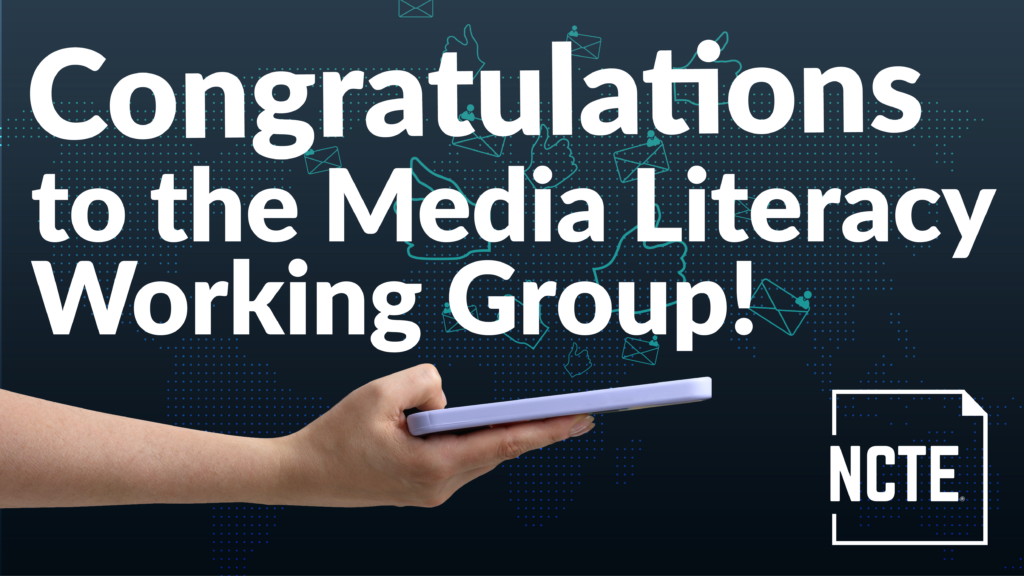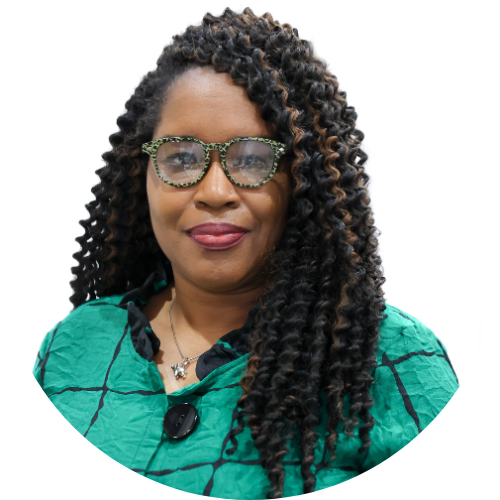Media Literacy Working Group
“ELA educators are responsible for preparing students for a future with an evolving media landscape. As society and technology change, so too does literacy (NCTE, 2019b). While some instructional practices of media education can be generalized across disciplines, many areas are unique to disciplinary literacy within ELA education. Because English teachers have a professional responsibility to prepare students for work, life, and citizenship, media education must be an essential component of the professional identity of teachers. We believe that ELA educators are creative individuals who are familiar with the power of digital media authorship in their own lives.” – NCTE Position Statement, Media Education in English Language Arts
Calling secondary and college members! Interested in real-world media literacy for your students? NCTE is partnering with AverPoint to lead a Media Literacy Working Group (MLWG) in the autumn of 2024 and the spring of 2025. The group of English educators and scholars will collaborate with AverPoint to produce an effective, living, cognitive media literacy playbook that includes:
- The metric(s) of cognitive media literacy
- Scaffolded learning goals and lessons for each level
- Content including sample lesson plans with curated articles, research prompts, and writing prompts
- Interaction and measuring tools through AverPoint
- AverPoint software and personal guidance to get started
- Clear connections to existing classroom goals
MLWG members will receive free access to and training on AverPoint software starting in November 2024. Educators will develop, execute, and assess lesson plans using AverPoint in the winter and spring of 2025, meeting monthly to share their progress and collaborate with their peers. Lesson plans will use NCTE’s ReadWriteThink framework and be peer-reviewed as part of the cognitive media literacy playbook.


Grace Lee is a dedicated educator and policy advocate with a rich educational and cultural background shaped by her experiences living and studying in South Korea, the United Kingdom, and the United States. Currently, she teaches English language arts at Hinckley-Big Rock Middle School in Illinois, where she brings a global perspective to her classroom, enriching her students’ learning experience. Now in her twenty-first year of teaching, Lee is passionate about fostering an enriching literacy environment for her students.
Lee holds two Master of Science degrees in education—one in curriculum and instruction and the other in educational administration, along with a principal’s license. She also earned a Master of Arts in public policy and administration from Northwestern University, focusing on policy impacts across different levels. From 2018 to 2020, she served as a Kent D. Williamson Policy Fellow with the National Council of Teachers of English, contributing to important policy initiatives.
Currently, Lee is a doctoral candidate at the University of Illinois where her dissertation centers on multicultural literacy and educational practice. As chair of the NCTE Standing Committee on Global Citizenship, she is committed to advancing global citizenship and literacy, empowering students with the critical skills needed to engage thoughtfully in today’s interconnected world.

Quang Ly is a lecturer in the Department of Writing Studies at the University of Miami. He holds a PhD in English from Ohio University and a master’s degree in education from Florida Atlantic University. With eight years of experience teaching undergraduate composition, he skillfully integrates diverse literacy practices and multimodal writing techniques into his pedagogy to enrich learning experiences and enhance student engagement. Dr. Ly’s research interests include collaborative writing and first-year writing. Building on these interests, his current research focuses on the role of artificial intelligence in students’ writing processes. Furthermore, he has been an active member of the National Council of Teachers of English and the Conference on College Composition and Communication for the past two years.

Kimberly White-Glenn, PhD, is an assistant professor of secondary reading/literacy at Alabama A&M University. White-Glenn has expertise in secondary reading, reversing academic underachievement, hip-hop literacies, the African American intellectual tradition, and cutting-edge AI instructional strategies. Her lifelong commitment to education includes instructional coaching, and she is an advocate for Teaching in the Spirit paradigm. She is also an author of the groundbreaking book Secure the Bag and an award-winning educator whose innovative approaches have transformed countless lives. As the visionary founder of EDU 4 Life, an educational service dedicated to uplifting underachieving students, White-Glenn’s impact extends far beyond the classroom. A dynamic and sought-after speaker, White-Glenn captivates audiences with her inspiring insights and unwavering commitment to educational equity and excellence.
